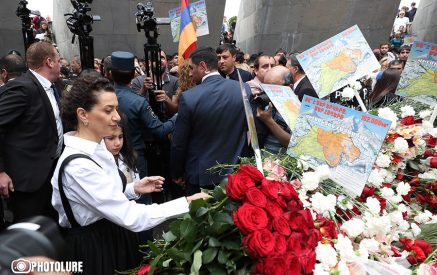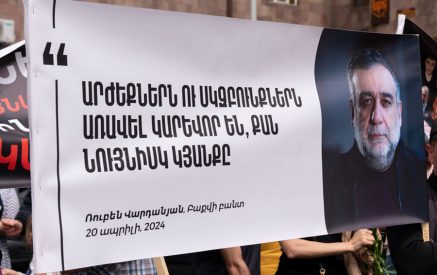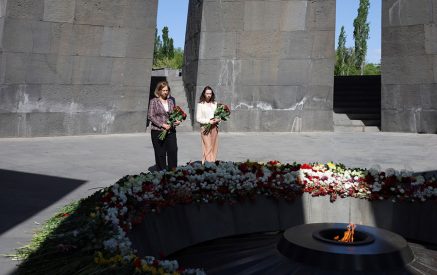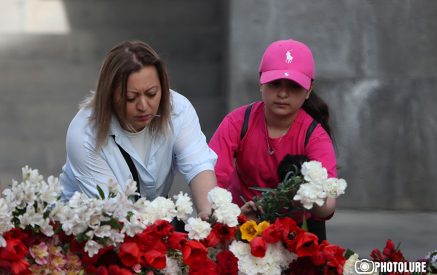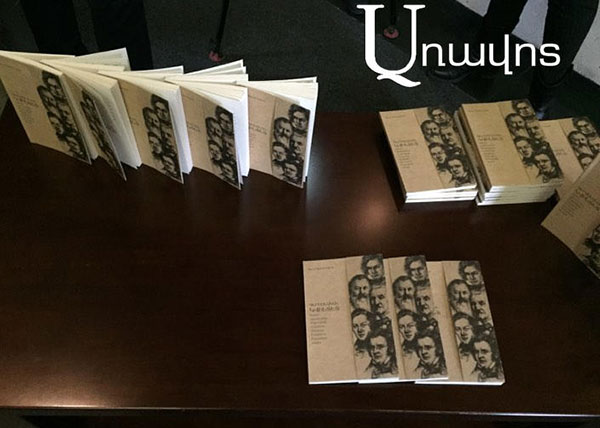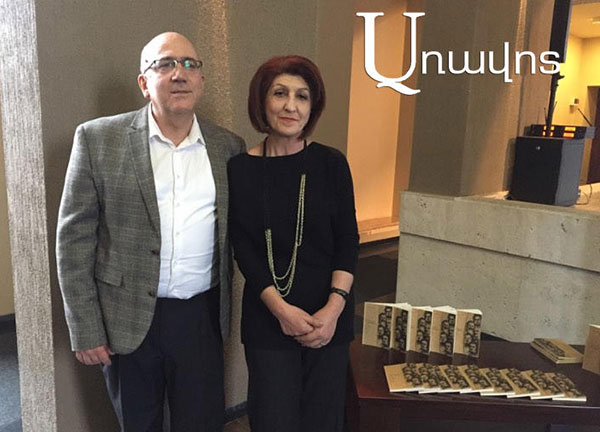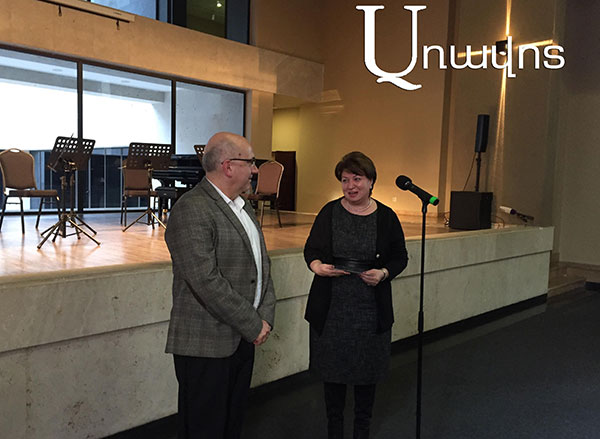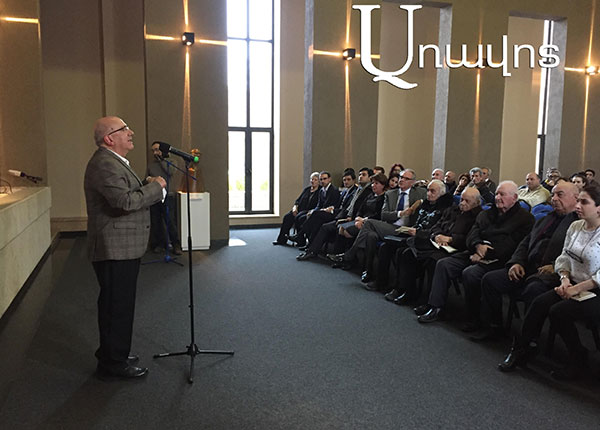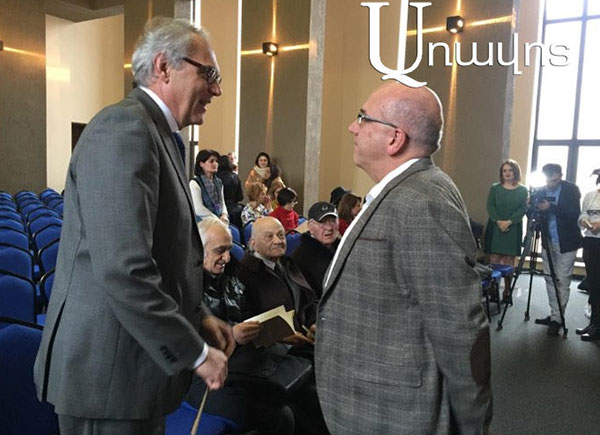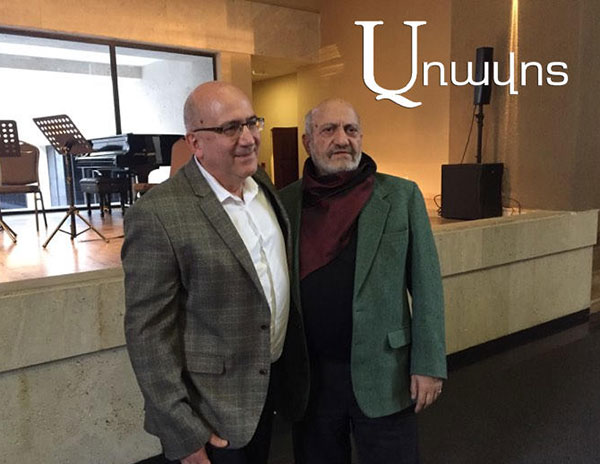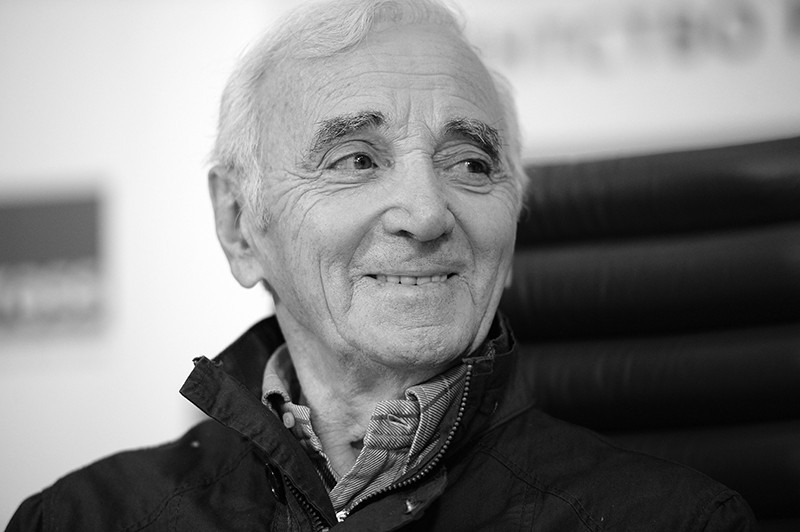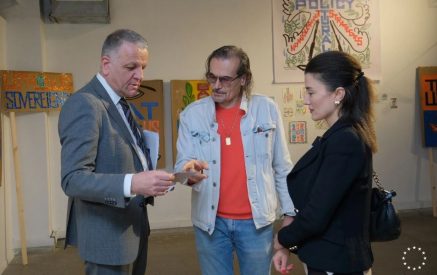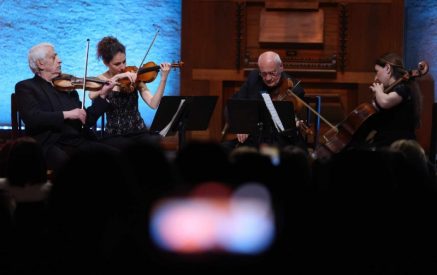On February 21, at Komitas Museum-Institute, Aram Abrahamyan’s “German Quintet: Free Thoughts on Beethoven, Schubert, Schumann, Brahms and Bruckner” book presentation took place. The book, authored by musicologist Aram Abrahamyan, depicts the lives and work of the 5 prominent composers – Beethoven, Schubert, Schumann, Brahms, and Bruckner, representing the 19th-century German culture. The book is readable for large circles of people and is dedicated to conductor David Khanjyan’s memory.
The editor of the book, Seda Shahinyan mentioned that despite the most difficult conditions, Armenian musicologists continue working, they publish various books, articles in journals both in Armenia and abroad: “The whole issue is that all publications mainly refer to the Armenian music and its issues. It seemed that the compositions of world classics, the legacy of the greatest composers, their lives are examined so much, so much literature is present – both biographical and musicological, even fiction, that nothing remains to say any more… However, this small book came to being: “German Quintet”, the author of which is my dear friend, musicologist Aram Abrahamyan. It seemed everything was said about these five eminent composers, but knowing Aram Abrahamyan well, we should have understood that he not only had a new say but also should have approached to all topics from a new angle.”
She added that there is almost no literature on the European great composers in Armenian, and this book comes to fill in that gap.
Seda Shahinyan qualified Aram Abrahamyan as a wonderful musicologist, then, while presenting the book, quoted musicologist Araksi Saryan’s words – if you read any musicological research and think that you cannot write like that, then it is succeeded.
“While reading the book I was thinking about those very words, that I would not be able to write in a similar way, inasmuch as the issues encompassed here are a lot for an ordinary intellectual: Beethoven, Schubert, Schumann, Brahms, Bruckner: Aram Abrahamyan has addressed to the representatives of Austro-German school,” added the editor.
National Painter of the Republic of Armenia, the former director of National Gallery of Armenia, Paravon Mirzoyan recalled Aram Abrahamyan’s own “Para-canon” TV programme he had been shooting in the Gallery. As he recalled, the 20% of the texts written for that programme is used in this book. “When his programme was being shot in the hall, I was thinking in the parallel hall – let me go and listen to what they shoot. All that was extremely interesting to me. And when the programme played on the TV, I was astonished. They were not ordinary lectures, they were such cultural programmes, which I now miss and would like them to be repeated again. And if I am a painter and was watching the programme with pleasure, I imagine how interesting it was for specialists,” told the painter.
He had brought a symbolic present with him – the book-album of the National Gallery of Armenia, which he presented to Aram Abrahamyan.
Conductor, RA Honored Artist, Ruben Asatryan mentioned the book was intended for a large circle of readers, however, there are extremely important lines for professional musicologists: “There are such elucidations of the compositions given in a few lines that you should go back and reread about that composition. Particularly on Beethoven’s Violin Concerto, which has, later on, become a ground, a guideline to Tchaikovsky, Sibelius, Aram Khachaturian and others, meanwhile back then it was considered a failure.”
The author of the book, Aram Abrahamyan told during his speech: “Journalism is an art of telling an interesting story… One can tell an interesting story about everything, including quantum physics, fine organic chemistry… One can tell so interestingly for people to both indulge in that topic and enlarge their mindset. Naturally, I have not studied quantum physics, neither have I studied fine organic chemistry. I have studied music for 5 years in one of the best USSR universities, Yerevan State Conservatory, where I have been taught symphonic orchestra partitur by conductor David Khanjyan, to whom I have devoted my book. Musicians will understand – it is another thing when you simply listen to something, and another thing when you imagine the whole partiture – from flute to double bass. It is a great joy and that joy I have been given to by the great conductor.”
Gohar HAKOBYAN




































